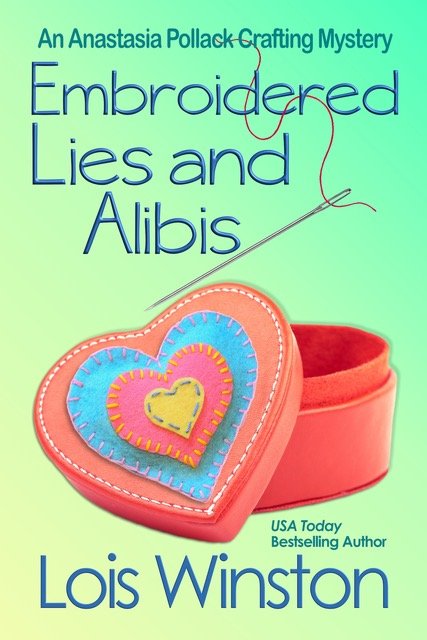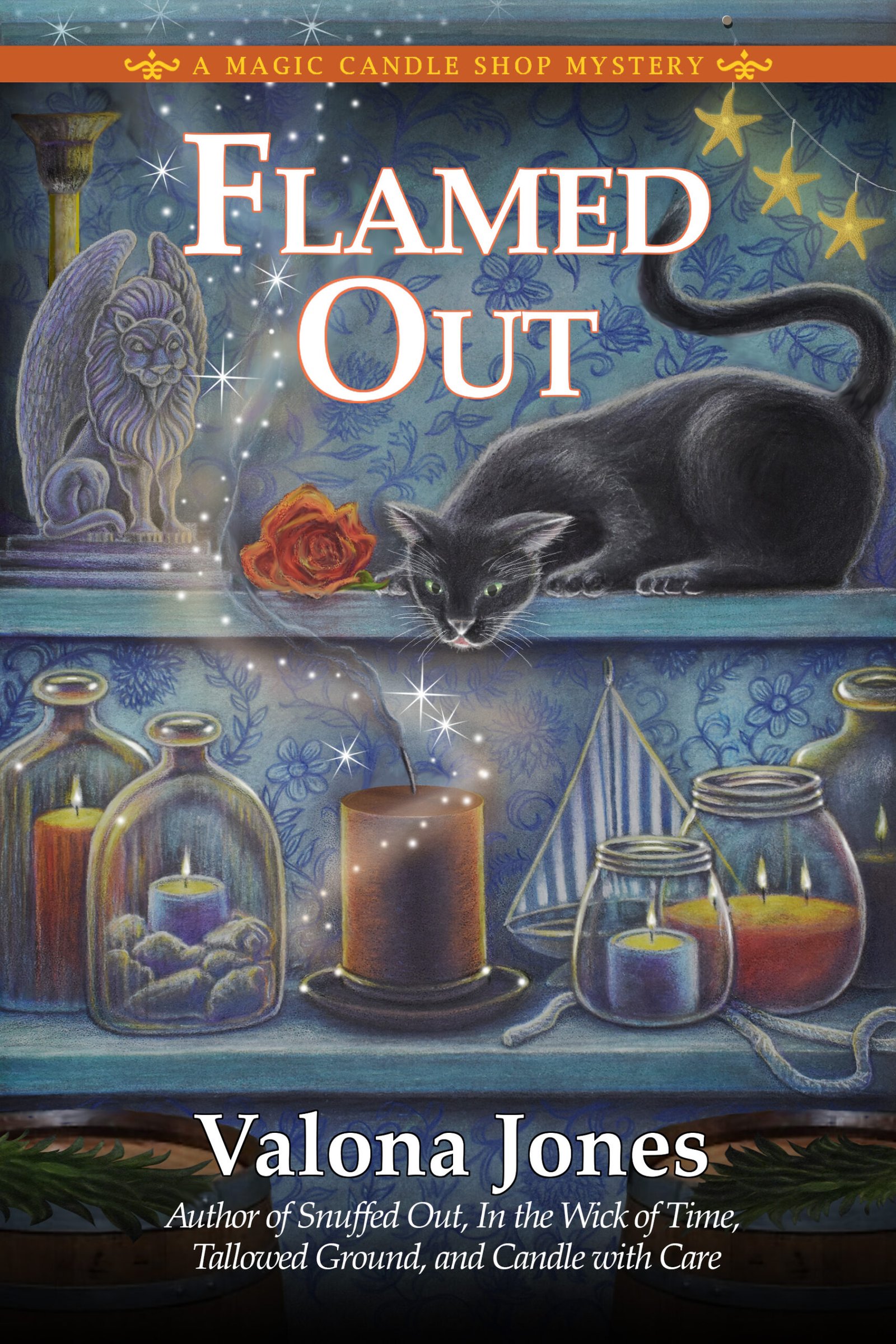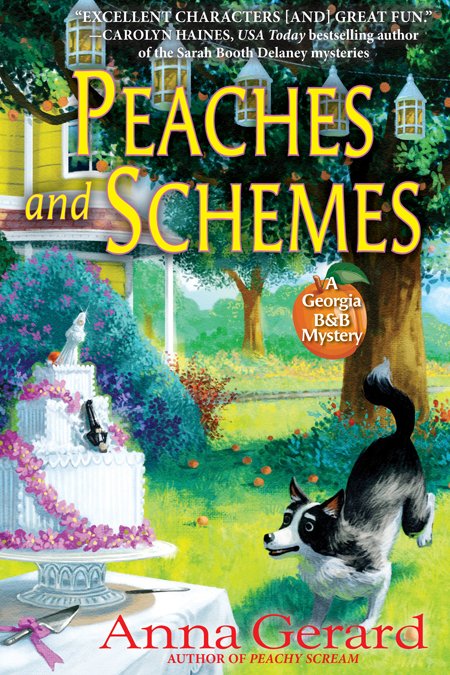Let’s Talk with Terry Odell
Series, Standalones, or Connected Books?
By Terry Odell
Series, Standalones, or Connected Books?
I write all three, but what’s the real difference?
In a series, such as my Mapleton Mystery series, there’s one featured protagonist throughout the entire series. Think Harry Bosch, or Lucas Davenport, Elvis Cole, Joe Pickett—and of course the mystery authors here at Booklover’s Bench who follow a character, or set of characters throughout many books. Nancy J. Cohen has Marla Shore in her Bad Hair Day mysteries, Tina Whittle has Tai Randolph and Trey Seaver in her series, Maggie Toussaint’s Guardian of the Earth series has its recurring cast of characters, and Jim Jackson has Seamus McCree. These are true “series” books where each one follows the next, and generally are best read in order.
In connected books (popular in romance), there might be recurring characters that appear in several books, but for the most part, there will be a different hero and heroine. When I wrote Hidden Fire, I was clueless about the romance convention that the same characters couldn’t be hero and heroine in a second book, but I wasn’t done with Randy and Sarah—and I’d left their relationship open enough at the end of Finding Sarah so it was natural to pick things up where I’d left off. If J.D. Robb could do it, why couldn’t I?
So, my Pine Hills Police books are connected in place and with recurring characters, but they’re not really a series by definition. Same goes for my Blackthorne books, and my new Triple-D Ranch romantic suspense books. In our group, Maggie Toussaint also writes connected books, as does Karla Brandenburg.
 A subset of series would be spin-offs, where there’s some connection to a series, but that world isn’t the focus of the book. I did this with Nowhere to Hide, which followed a character from Finding Sarah across the country to a new home, a new life. In Hot Water, book 1 in my Triple-D Ranch books, has ties to my Blackthorne, Inc. books. However, in spin-offs, a reader doesn’t need to be familiar with one world to appreciate the other.
A subset of series would be spin-offs, where there’s some connection to a series, but that world isn’t the focus of the book. I did this with Nowhere to Hide, which followed a character from Finding Sarah across the country to a new home, a new life. In Hot Water, book 1 in my Triple-D Ranch books, has ties to my Blackthorne, Inc. books. However, in spin-offs, a reader doesn’t need to be familiar with one world to appreciate the other.
What about standalones? These books are totally self-contained. For me, that’s What’s in a Name? There are no connections to any of my other books, everything is resolved, and I haven’t revisited Blake and Kelly—although every now and then I wonder what they’ve been up to. Harlan Coben writes wonderful books, and each is a new experience for the reader.
What about you? Do you have a preference? Series, Connected, or Standalones? If you “meet” a new author and see there are 21 books in a series, do you start at book 1? Do you mind not knowing what’s happened before? For me, a book club chose book 18 in a series, and the only other book I’d read in that series was book 1, and I didn’t enjoy the left out feeling, and was confused by all the characters that had been introduced and described in much more depth as the series progressed.
Let me know in the comments—I’ll give one winner a choice of a download of any book 1 in any of my series, or my stand alone.
Posted in Let's Talk, with Terry Odell, zed: Former Authors • Tags: BLB Discussion, giveaway, Let's Talk, Series Stand alones or connected books, Terry Odell | 28 Comments







I like both series and standalones. When I meet a new author , who has written a series, I always start with the first book unless I don’t know it is part of a series. I too feel lost if that happens because characters and sometimes events are mentioned and I am out of the loop. I love your books and this one sounds like fun!
Thanks so much. I’m so anal about reading in order that I’ll stop in the middle of a book if I find out it’s not “book 1” and go back to catch up.
When I started writing Living Canvas and was looking for character names, I realized I could carry forward a secondary character from Touched by the Sun, and the Northwest Suburbs series was born. The location is the common thread for those, but you see many of the same characters showing up to say hello. Likewise with my Mist trilogy
Having characters return can be a mixed blessing. I remember when I started writing Rooted in Danger, my 3rd Blackthorne book, which was going to be Grinch’s story. I went back to the first 2 books to see what details I might already have mentioned, and found out that in a simple throwaway line (he wasn’t even IN that book) I’d given him a kid. Now THAT was a challenge!
As a reader, I like series, and I like to start at the first– if I somehow end up reading a later book that I enjoy, I get myself right back to the first for my continued reading.
As I writer, I have a series, but writing a book that will be equally appealing to both a brand new reader and familiar readers is getting really tough. I gave up with the 5th — it’s a book for readers who love my protagonist, though the first-time reviewers who have picked it up so far have not been disappointed at being a bit out of loop. Fingers crossed that continues.
But for my next trick, I’m co-writing a set of connected stories, a trilogy, with a romance-writing friend. I’m reading yours for inspiration.
I hear you on those challenges. Balancing the tidbits that make returning reader smile without making new readers scratch their heads in confusion is definitely hard, and gets harder with each book. It’s a little easier in connected books and spinoffs, but for a true series, there’s a definite balancing act required. And thanks for telling me my books are inspiring you. Coming from you, that’s high praise. Your Tai and Trey rock!
I like series that also can stand as stand-alones. A little bit of catch-up for new readers or those who have only been able to obtain a few books in the series, not in order. I’ve done that at the library or Kindle, whatever plot strikes my fancy at the times. Once I’m hooked, I’ll go back for more. I prefer print books although my Kindle app and other eBook reader apps are overloaded! But I do reviews on satisfying reads, so there is some completion to my reading list.
Thanks for chiming in, Lyn. It’s nice to give returning readers their “insider” moments. What I don’t like is a series that recaps too much from previous books. I read a Book 2 first, and the author revealed so much about the crime in book 1 that there was no need for me to read that one. One author even revealed the name of the killer from a previous book. No point in reading that one, either.
I do agree that too much info is way to much! Leave something to the imagination and make us interested in what’s next.
I don’t mind reading a series out of order. If I like the book I pick up, no matter what number it is in the series, I’ll go back and look at the others. Not every book strikes my fancy, but story does and voice does. I have some authors I read everything they write. Other authors I only read one particular series. My strongest preference? A book I can’t put down.
I like all three, the standalones (a new adventure each time), the connected ones (I enjoy revisiting old friends), and the series (I do have to start at the beginning and go all the way thru to the end). But I enjoy all three only if I like the author’s writing…that’s the biggee for me. Thanks for the explanations, Terry…and I do like your writing. 🙂 jdh2690@gmail.com
Thanks! And yes, there’s no point in reading any books regardless of classification if you don’t like the author’s writing. Or the characters (which is a biggie for me, especially in a series).
I prefer reading series and connected stories. However I will read a stand alone of it is written by a favorite author. I have to read a series from the beginning…character development is important to me. With connected books I can start anyplace, but I will usually go back and read previous books.
Thanks for sharing your thoughts, Trude. I’m a ‘series from the beginning’ person, too. I read a ‘connected book’ by a prolific best-selling author and within the first 2 chapters, she’d introduced a cast of characters and so much of their back stories that I stopped reading and never picked up anything else of hers again.
I enjoy series, connected books and standalones…. I try to read them in order, but sometimes miss books… the only time it bugs me is if you have to have all of the books in order to understand or enjoy a series… I do not always stay with a series or get all of the books… I read a lot and go with what mood I am in.
Colleen, I agree that it’s tough to make sure you have all the books, especially when you discover a series that started so long ago the early books are impossible to find. If publishers are smart, they’ll make sure the books are issued in digital format (although sometimes they’re really bad about pricing)
My preference for books are definitely either standalones or series. I admit that it’s difficult to decide to pick up a standalone, especially if it’s an unfamiliar author. The biggest factor for me to try a new standalone is whether I like the summary on the back. I like standalones since I know I won’t be left hanging and I feel like I got a nice, neatly wrapped beginning and ending.
Series, on the other hand, are great for really immersing myself in a new world. I definitely always start with the first book in a series because I can’t stand not knowing whether or not I’m missing out on something. I can never tell if I’m confused because we (the readers) aren’t supposed to know something yet, or if it’s just because I didn’t read the previous book.
I also really appreciate it when an author makes it clear on their website whether a book is part of a series and if so, what number it is (I noticed you organized/labeled your books on your website). It’s annoying when I have to go searching all over the place trying to find the reading order or if a book can be read as a standalone. All that time wasted when I could be reading instead!
Thanks, Christine – I thing authors owe it to their readers to provide good “customer service” which means letting readers know what kind of a book they’re going to find, and whether it is part of a larger group or stands by itself. And I despise books where the ending doesn’t wrap up the major plot threads. To me ending on a ‘cliffhanger’ is cheating.
standalone; don’t read every book in a series
Thanks for your comment. I’ve been known to abandon series, but if I enjoy the characters, I’ll read them all. And if I’ve liked them and the author, I’ll read a stand alone, but I think most of what I like about series is following a character I’ve grown to love.
I read all three. I got into all three when I started reading Nora Roberts/JD Robb books. The good thing about Amazon and used book stores, it that you can find back copies of books.
I remember searching for the first on Robert Crais’ Elvis Cole books. This was pre-ebook days. Now, it’s much easier to fill in the gaps.
I guess I like both ways. If I find I’ve read a series in the middle and I really like the characters and the writing then I’m apt to try and read the rest of the series from the beginning. While I hate not knowing what happened before I also hate it when the author tries to catch everyone up with lengthy descriptions of what happened before.
Handling back story without info dumping can make the difference between hooking new readers and having them drop a series entirely.
I prefer a series so I can follow the protagonist, but I’ll quickly tire of it if the main character doesn’t grow and evolve. I’ll start with book one in most cases but not always. If you like a book, you can always go back and start the series from the beginning.
I’m all about the characters, too. If you don’t like the protagonist, then why would you read an entire series featuring that character? And I agree, growth is essential. JD Robb’s “In Death” series does this masterfully.
I like both the standalone books and the series, and I like to be able to read them out of order, I can usually catch up.
Yes, the beauty of stand alones is they … stand alone! Doesn’t matter when you read them. And some people can read series books in any order. Not me, though.